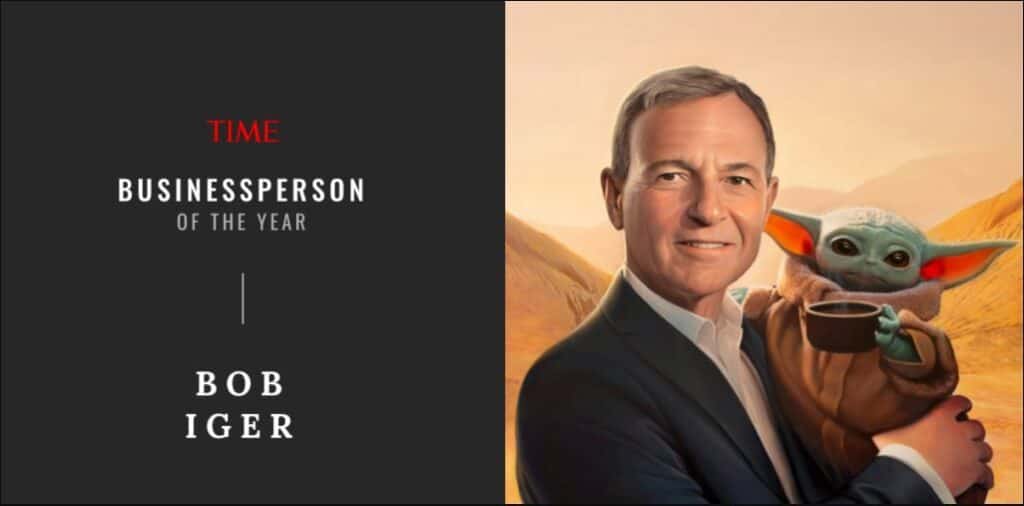This book is about the career of Bob Iger who was named President and COO of Disney in 2000, and later became CEO of Disney from 2005 to 2020. I Bob Iger started as lightsman in a TV studio to become the CEO of Disney, not bad.

- I suppose—but I tend not to feel much anxiety when things go awry. And I tend to approach bad news as a problem that can be worked through and solved, something I have control over rather than something happening to me.
- Innovate or die, and there’s no innovation if you operate out of fear of the new or untested.
- There’s not enough time, or I don’t have the energy, or This requires a difficult conversation I don’t want to have, or any of the many other ways we can convince ourselves that “good enough” is good enough.
- In fact, true integrity—a sense of knowing who you are and being guided by your own clear sense of right and wrong—is a kind of secret weapon. They trusted in their own instincts, they treated people with respect, and over time the company came to represent the values they lived by. A lot of us were getting paid less than we would have been paid if we went to a competitor. We knew they were cheap. But we stayed because we felt so loyal to these two men.
- At its essence, good leadership isn’t about being indispensable; it’s about helping others be prepared to possibly step into your shoes—giving them access to your own decision making, identifying the skills they need to develop and helping them improve, and, as I’ve had to do, sometimes being honest with them about why they’re not ready for the next step up.
- Optimism in a leader, especially in challenging times, is so vital. Pessimism leads to paranoia, which leads to defensiveness, which leads to risk aversion.
- This isn’t about saying things are good when they’re not, and it’s not about conveying some innate faith that “things will work out.” It’s about believing you and the people around you can steer toward the best outcome, and not communicating the feeling that all is lost if things don’t break your way. The tone you set as a leader has an enormous effect on the people around you. No one wants to follow a pessimist. There was no signaling as to what was most important, no easily digested, comprehensive vision. My overall vision lacked clarity and inspiration.
- You can do a lot for the morale of the people around you (and therefore the people around them) just by taking the guesswork out of their day-to-day life. A CEO must provide the company and its senior team with a road map. This is where we want to be. This is how we’re going to get there.
- Unless consumers had the ability to consume our content in more user-friendly, more mobile, and more digital ways, our relevance would be challenged. In short, we needed to view technology as more of an opportunity than a threat, and we had to do so with commitment, enthusiasm, and a sense of urgency.
- We’ll never get the admiration or the public unless we get it from our own people first. And the way to get the people working for us to admire the company and believe in its future is to make products they’re proud of. It’s that simple.”
- Don’t let your ego get in the way of making the best possible decision
- To my mind, though, they were often too deliberative, pouring every decision through their overly analytical sieve. Whatever we gained from having this group of talented people sifting through a deal to make sure it was to our advantage, we often lost in the time it took for us to act. This isn’t to say that research and deliberation aren’t important. You have to do the homework. You have to be prepared. You certainly can’t make a major acquisition without building the necessary models to help you determine whether a deal is the right one, but you also have to recognize that there is never 100 percent certainty. No matter how much data you’ve been given, it’s still, ultimately, a risk, and the decision to take that risk or not comes down to one person’s instinct.
- “This can’t be about the past. There’s nothing we can do about bad creative decisions that were made and disappointing films that were released. But there’s a lot we can do to change the future, and we need to start now.”
- “I know why companies fail to innovate,” I said to them at one point. “It’s tradition. Tradition generates so much friction, every step of the way.”
- I think, to hold on to that awareness of yourself even as the world tells you how powerful and important you are. The moment you start to believe it all too much, the moment you look yourself in the mirror and see a title emblazoned on your forehead, you’ve lost your way. That may be the hardest but also the most necessary lesson to keep in mind, that wherever you are along the path, you’re the same person you’ve always been.
- In any negotiation, be clear about where you stand from the beginning. There’s no short-term gain that’s worth the long-term erosion of trust that occurs when you go back on the expectation you created early on.
Give a follow in Twitter to stay updated with my posts @diny87